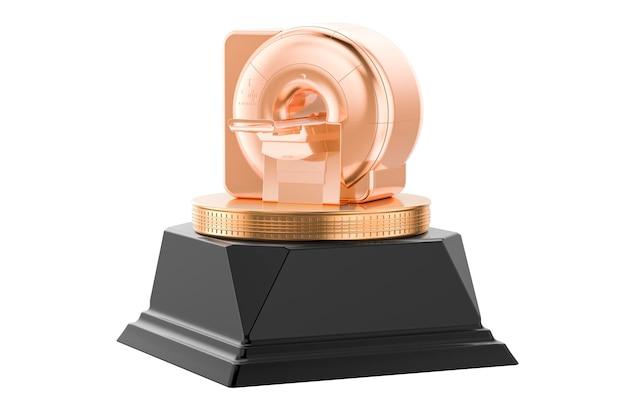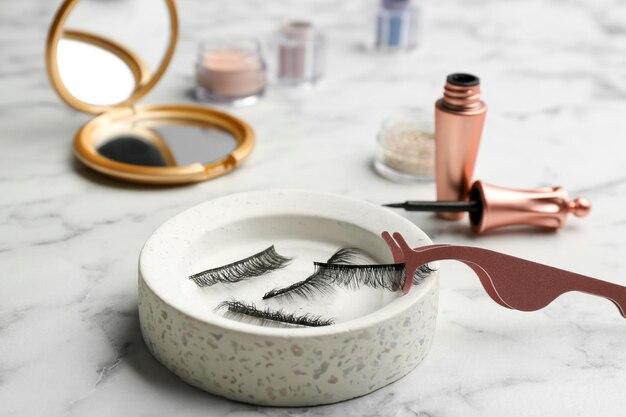Welcome to our blog, where we delve into the fascinating world of jewelry and metals. If you’re drawn to the allure of rose gold, you might have wondered whether this blush-tinted metal possesses magnetic properties. Rose gold has gained immense popularity in recent years for its romantic hue and timeless appeal, but does it possess the magnetism that other metals do?
In this blog post, we will shed light on this intriguing question and explore the nature of rose gold’s magnetic properties. We’ll also cover related topics such as the karat of rose gold, its reaction to water, how to distinguish it from copper, and more. So, if you’re curious about the magnetic allure of rose gold, sit back, relax, and let’s uncover the truth together.
So, let’s dive right in and demystify the magnetic nature of rose gold.

Is Rose Gold Magnetic
Rose gold has gained popularity in recent years for its elegant and unique appearance. Many people are drawn to its pinkish hue, but some wonder if rose gold is magnetic. In this subsection, we’ll explore whether rose gold possesses any magnetic properties and unveil the truth behind this shiny metal.
The Nature of Rose Gold
To understand if rose gold is magnetic, we first need to delve into its composition. Rose gold is an alloy made by combining pure gold with copper and sometimes a small amount of silver. The proportion of copper gives rose gold its reddish-pink color, while the silver enhances its durability.
The Magnetic Myth
Contrary to popular belief, rose gold is not magnetic. Pure gold, the main component, is a non-magnetic metal. Copper and silver, which are mixed to create rose gold, are also non-magnetic substances. Therefore, the alloy created from these elements inherits their non-magnetic nature.
Can Gold Be Magnetic
While rose gold itself is not magnetic, it is worth mentioning that pure gold, without any other metals mixed in, remains non-magnetic as well. Even though gold is not drawn to magnets, it is highly valued for its lustrous appearance, scarcity, and ability to withstand tarnishing.
Debunking the Assumption
The confusion about the magnetic properties of rose gold may arise from the fact that certain metals, such as iron or nickel, can be plated with a layer of rose gold. In this case, the underlying metal is magnetic, but the thin rose gold plating is not. So if you come across a rose gold-colored object that is magnetic, it’s most likely not pure rose gold.
Magnetic Allure
While rose gold may not possess magnetic properties, it certainly exerts a different kind of attraction. People are captivated by its warm and romantic color, making it a trendy choice for jewelry, watches, and even smartphones. Rose gold has found its way into our hearts, magnetic or not.
Final Verdict
In conclusion, rose gold is not magnetic. Its non-magnetic nature stems from the composition of the alloy, consisting of non-magnetic elements like gold, copper, and silver. Although it may share the same color as other magnetic metals, any magnetic properties attributed to rose gold are most likely due to underlying metals or plating. Regardless, the allure of rose gold remains undeniable, magnetic charm or not.
So, the next time you lay your eyes upon a stunning piece of rose gold jewelry, rest assured that its attraction lies in its beauty rather than its magnetic capabilities.

FAQ: Is Rose Gold Magnetic
Rose gold is a beautiful and popular choice for jewelry, but there are often questions surrounding its properties and characteristics. In this FAQ-style guide, we’ll answer some common questions about rose gold and its magnetic properties.
What Karat is Rose Gold
Rose gold is typically made by mixing pure gold with copper to give it its unique pinkish hue. The karat measurement refers to the purity of gold, with 24 karat being pure gold. Rose gold is commonly available in 14k and 18k varieties, which means it is made up of 14 or 18 parts gold mixed with 10 or 6 parts of other metals, respectively.
Does Rose Gold Tarnish in Water
While rose gold is generally resistant to tarnishing, prolonged exposure to water or other harsh chemicals can cause some discoloration or dullness over time. To maintain its luster, it is advisable to remove rose gold jewelry before swimming, bathing, or using cleaning products.
What Jewelry is Magnetic
Most jewelry made from precious metals like gold, silver, or platinum is not magnetic. However, certain types of jewelry, such as those made with stainless steel, iron, or nickel, may be magnetic due to the metal compositions used in their production.
What is Rose Gold Metallic
Rose gold itself is not considered a magnetic metal; it does not attract magnets. Instead, it is the composition of metals used to create the rose gold alloy that can determine its magnetic properties. Since copper, a component in rose gold, is not magnetic, rose gold does not possess magnetic properties.
What Jewelry Metals are Not Magnetic
As mentioned earlier, the majority of precious metals used in jewelry, including gold, silver, and platinum, are not magnetic. These metals are good conductors of electricity and have unique properties that make them highly suitable for crafting jewelry.
How Can You Tell if Gold is Fake
There are a few methods to test the authenticity of gold. One simple test is to try and stick a magnet to the gold. Since real gold is not magnetic, if the gold attracts the magnet, it is likely fake or contains magnetic metals. Additionally, you can perform an acid test or have the gold professionally evaluated by a jeweler or gold expert.
Why is My Fake Gold Not Magnetic
If fake gold is not magnetic, it could mean that it is made from materials that are not magnetic, such as brass or certain non-ferrous metals. It’s important to remember that magnetic properties alone are not a definitive test for determining the authenticity of gold.
How Can You Tell the Difference Between Rose Gold and Copper
At times, the color of rose gold may resemble that of copper, leading to confusion. One way to differentiate between the two metals is by checking for a hallmark. Rose gold pieces will typically be stamped with a karat mark, such as 14k or 18k, indicating their gold content. Copper, on the other hand, usually lacks such markings.
Why is My Gold Magnetic
If your gold is magnetic, it is likely a result of impurities or the presence of other magnetic metals in the alloy. Gold itself is not magnetic, so if your gold jewelry is attracting magnets, it may be a sign of lower purity or the addition of magnetic elements during the manufacturing process.
Is 18k Gold Magnetic
Pure gold, regardless of its karat rating, is not magnetic. However, the presence of other metals in an 18k gold alloy might introduce magnetic properties. So while 18k gold typically contains a higher percentage of gold compared to 14k gold, it is still possible for it to exhibit magnetic characteristics, depending on the specific alloy used.
Why is My Rose Gold Ring Turning Silver
If your rose gold ring appears to be turning silver, the most likely explanation is that the plating or coating on the surface is wearing off. A rose gold ring is often made from a gold alloy with a thin layer of rose gold plating. Over time, the plating can wear down, revealing the underlying metal, which may have a silver or copper color.
Is Raw Gold Magnetic
Raw gold, in its natural state, is not inherently magnetic. The magnetic properties of gold are only present when other metals or impurities are incorporated into its composition.
Can You Pick Up Gold with a Magnet
As mentioned earlier, genuine gold is not magnetic, so it will not be attracted to a magnet. If you are able to pick up gold with a magnet, it is likely fake or contains magnetic metals.
Will Gold-Plated Stick to a Magnet
Gold-plated items generally consist of a base metal coated with a thin layer of gold. Since the underlying metal is typically magnetic, the gold-plated surface itself may exhibit magnetic properties. However, the magnetism is not a result of the gold plating but rather the base metal.
Does Rose Gold Have Nickel
Rose gold does not inherently contain nickel. However, in some cases, rose gold alloys may contain a small amount of nickel to enhance durability and strength. If you have a nickel allergy, it is advisable to check the composition of the specific rose gold piece before purchasing or wearing it.
Is Strawberry Gold the Same as Rose Gold
Strawberry gold is a term sometimes used to describe a particular shade of rose gold. It refers to a variety of rose gold with a warmer, redder hue. While the exact color and terminology may differ between jewelry brands, strawberry gold is essentially a variation of rose gold.
Is Pink Gold and Rose Gold the Same
In terms of jewelry, pink gold and rose gold are typically used interchangeably to describe the same alloy. Both terms refer to gold alloyed with copper, giving it a pinkish hue. The precise shade of pink or rose can vary depending on the proportions of gold and copper used in the alloy.
Does Rose Gold Stick to Magnets
No, rose gold itself is not magnetic and will not stick to magnets. The non-magnetic properties of rose gold are due to the absence of magnetic metals in its composition.
Is Rose Gold Worth More Than Gold
The value of rose gold is determined by the current market price of gold and the karat weight of the alloy. Since rose gold is made by combining gold with copper, it typically has a lower gold content compared to yellow or white gold, which can affect its market value. However, the subjective value of rose gold may vary depending on personal preferences and trends.
Is Rose Gold a Conductor
Gold is an excellent conductor of electricity, and this property carries over to rose gold as well. The copper content within rose gold enhances its electrical conductivity, making it suitable for certain electrical applications.
How Do You Test Gold with Baking Soda
To test gold with baking soda, combine a small amount of baking soda and water to make a paste. Rub the paste onto the gold item in question and observe any reaction. Pure gold will not react or tarnish, but lower-quality alloys or fake gold may cause the paste to darken or produce a greenish residue.
Is Rose Gold a Precious Metal
Yes, rose gold is considered a precious metal. Precious metals are rare, naturally occurring metals that have high economic value and desirable characteristics. Gold, including rose gold, is included in this category due to its scarcity, durability, and traditional use in fine jewelry.
In conclusion, rose gold itself is not magnetic. Its non-magnetic properties can be attributed to the absence of magnetic metals in its composition. While rose gold may contain small amounts of other metals, such as copper or nickel, these metals do not inherently possess magnetic properties. So, whether you’re adorning yourself with a stunning rose gold necklace or considering a piece of rose gold jewelry as a gift, you can be confident that it won’t be sticking to any magnets!